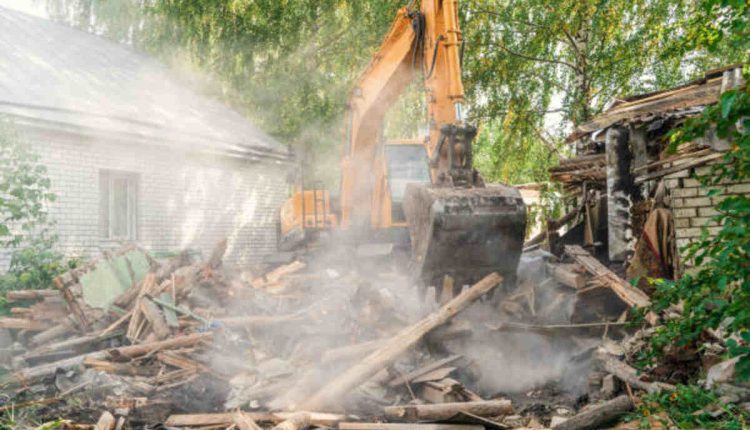Know Your Demolition Costs Whether you are rebuilding an existing house or starting from scratch, understanding demolition costs is of vital importance. Accurate estimates rely heavily on historical project data as well as scrutiny and verification of costs. Best way to find the HendersonDemolition Contractor.
Labor costs are the main driver for construction costs, followed by equipment, permits, dumping fees, and waste disposal services. Hazardous materials like asbestos also increase these expenses significantly.
Labor
Labor typically accounts for one to five of the total demolition costs per square foot. This cost covers workers, equipment, dumping fees, recycling fees, and permits – costs that depend on both project size and complexity; larger jobs often necessitate more workforce to tear down materials, while kitchen and bathroom demos often require additional expertise – typically adding another $1 to $5 to total project costs.
As part of any demolition, it’s essential to contact your local government and obtain all of the permits that may be needed for it. Many cities require water, sewer, and gas lines to be disconnected before demolition begins, as well as inspection fees. Some demolition companies will cover permit costs on behalf of their customers, but for an accurate assessment, contact your city building code enforcement department directly.
On average, demolition costs range between $4 to $8 per square foot for residential properties and slightly more for commercial structures, as they require more complex building regulations and standards to demolish. Furthermore, commercial structures often contain hazardous waste, which needs special disposal equipment and safety gear. If you intend on rebuilding, however, you will likely require hiring an architect as part of your plan in order to avoid costly mistakes while creating safe structures with structurally sound foundations.
Equipment
A practical demolition project requires various tools, such as cranes, bulldozers, excavators, dump trucks, and other equipment, in order to safely bring down structures and prepare the site for reconstruction. Such items can be expensive in areas with high labor costs or busy construction seasons – these costs also depend on factors like structure size and type. A large warehouse, for example, might need additional shoring measures in order to protect workers during its dismantling.
Once your demolition equipment is in place, you must find an efficient way of disposing of waste generated during the project. While trucking away your debris may be expensive, experienced dumpster rental companies can provide an accurate quote based on the type and quantity of debris to be removed from your project site.
Demolition projects that require the removal of hazardous materials typically incur additional expenses of $2 to $3 per square foot due to having to hire specialists with appropriate equipment to safely handle them and dispose of asbestos and other toxic waste in accordance with regulatory standards.
Permits
Some cities require that demolition projects receive specific permits before commencing work, often due to underground utilities that must first be covered and inspected before any work can start. Whether or not this presents any obstacles will depend on both your city and the circumstances of the demolition work in question.
Some companies specialize in obtaining all necessary permits and inspections before beginning demolition work, which can save both time and money by expediting the process and knowing exactly what’s needed to start demolition operations. They will also ensure all safety requirements are met during this process so as to avoid violations during its completion.
When selecting a demolition contractor, it is wise to solicit referrals and quotes from several different companies in order to find the most cost-effective one for your project. Furthermore, checking online reviews about each potential company could prove valuable; if there are numerous complaints or negative comments against one company in particular, it might be prudent to choose another provider instead.
DIY demolition can be dangerous and time-consuming; therefore, professional services should always be contacted for a quote on any necessary heavy equipment rentals. It may also be worthwhile contacting local dumpster rental companies to receive quotes as well.
Disposal
Demolishing old materials safely takes time, effort, and special equipment – but you can reduce costs per square foot by planning and searching around for better deals.
Demolition costs can escalate when dealing with asbestos-containing material that requires special handling and disposal procedures, adding significantly to labor, permit, and disposal fees. Therefore, it’s best to conduct an asbestos survey before starting demolition to identify any issues and address them quickly and effectively.
One element that can significantly drive up demolition costs is your choice of demolition method. Mechanical demolition uses heavy machinery and is generally faster and cheaper than deconstruction; however, it may also be more dangerous. Deconstruction uses slower methods that involve saving building materials that can be recycled later; it may cost more but provides greener alternatives with tax deduction benefits.
Rebuilding on the same site typically incurs utility line costs of $50-100 to cap existing water, sewer, gas, and electric lines before their removal during demolition. This process may be mandated by municipalities in order to prevent reconstruction on top of existing lines.
Read also: Cost Of House Demolition


